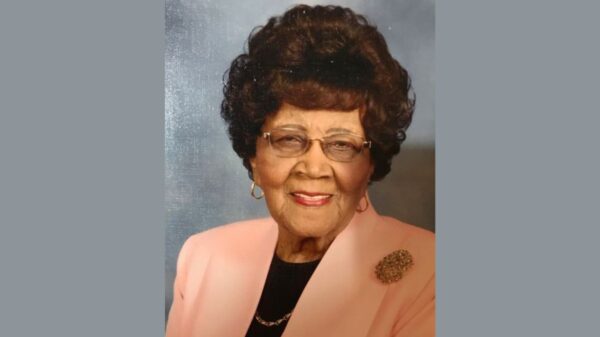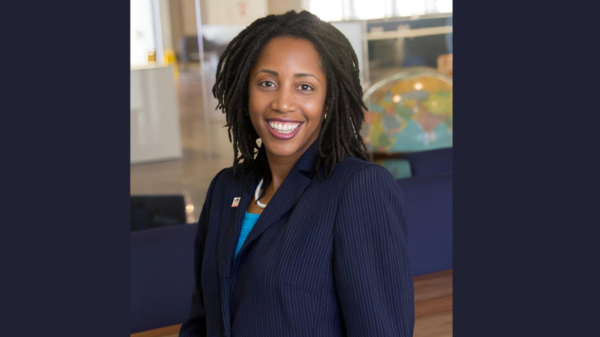
Richardson ISD trustees adopted a scaled-back plan to ban cellphone use in secondary schools at Thursday’s meeting.
The original proposal would have prohibited cell use by all RISD students in seventh through 12th grades. The board unanimously adopted a modified ban, which now applies to only one pilot campus, Forest Meadow Junior High.
The pivot came after massive outcry from the community when the original proposal was posted to RISD’s website on Aug. 6.
Susan Burt, principal at the pilot school, said she jumped at the opportunity to try out the new policy because cells have become the focus instead of what’s being taught in the classroom.
“And we need to change that for our students because they deserve that,” Burt said.
The district will issue Forest Meadow students a magnet-locked cellphone pouch from a company called Yondr.
A student who enters school with a cell must turn it off and place it in the Yondr pouch, which prevents the phone from being used. At daily dismissal, students will be able to open the pouch at unlocking stations throughout the school.
Feedback overwhelmingly pointed to parent support of the new proposal, but some parents had doubts about the pouch system being the right solution, according to a message from Richardson ISD Superintendent Tabitha Branum posted to the RISD website.
The implementation of the pilot program is meant to mitigate some concerns. The district will gather data from the pilot program to see how effective the technology is. The district will also track and compare teacher feedback.
Parents can still communicate with their children during the school day via email available on student Chromebooks. If a school emergency or lockdown occurs, staff members would be able to unlock bags when it is safe to allow students to contact their parents, and students who have smartphones to help manage a health condition, such as diabetes, would be able to continue to do so.
Euan Blackman, Richardson community member and parent, spoke during the meeting in support of the cellphone ban.
“The ubiquity of cellphones has not brought about the responsible use or the common sense that one would have hoped would have co-evolved with such amazing technologies,” he said.
Branum said this new policy aims to help students with classroom engagement, interaction and academic success. Teachers and principals have long recognized cellphones as a distraction and cause of behavior and disciplinary issues.
Campus administrators spoke in support of the ban, not as a punishment but to help teachers and students.
“Almost 90% of the discipline issues that we’ve dealt with last year started with a cellphone,” said Chris Choat, principal at Richardson High School. Issues caused by cells add to teachers’ wear-down, Choat added.
While RISD’s current cellphone policy, in place since 2012, already prohibited students using the devices in classrooms without permission, use during the school day was still a “pervasive issue,” said Matthew Gibbins, assistant superintendent at RISD.
It has become almost impossible for teachers to stop students from using their phones in class, said Kristy Cage, principal at LV Berkner High School. Some students hide their phone behind Chromebook screens, so teachers cannot tell if students are taking notes or texting with friends.
She said such a new policy “takes a lot of pressure off of the teachers, and that’s just one battle that they don’t have to fight every day.”
Branum pointed out that banning cellphones is not a “good kid versus bad kid” issue. The addictive nature of cellphones affects all students, she said. Something as simple as teachers giving kids extra time in class to work on homework often turns into scrolling through Instagram, TikTok or replying to Snapchats.
“I know that I sometimes find myself addicted to the cellphone,” Branum said. “It’s a discipline, and we as the adults, our students come to school to learn and we need to help create an environment in a discipline that lets them know they are going to be just fine if they don’t see that cellphone during that learning time.”
The DMN Education Lab deepens the coverage and conversation about urgent education issues critical to the future of North Texas.
The DMN Education Lab is a community-funded journalism initiative, with support from The Beck Group, Bobby and Lottye Lyle, Communities Foundation of Texas, The Dallas Foundation, Dallas Regional Chamber, Deedie Rose, Garrett and Cecilia Boone, The Meadows Foundation, The Murrell Foundation, Solutions Journalism Network, Southern Methodist University, Todd A. Williams Family Foundation and the University of Texas at Dallas. The Dallas Morning News retains full editorial control of the Education Lab’s journalism.









You must be logged in to post a comment Login